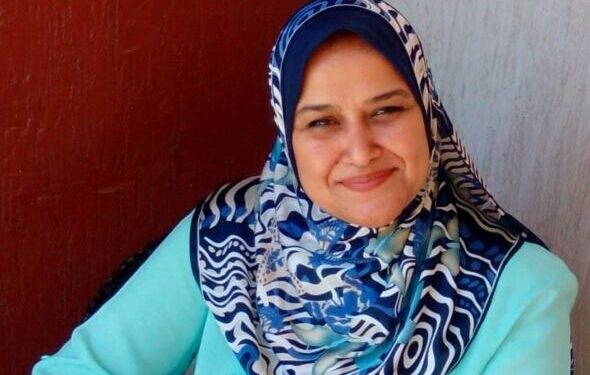Last week, the Arab League (AL) reiterated its call on Britain to rectify its historical mistake and express apology to the Palestinians for allowing and supporting the creation of a Jewish state in Palestine. The pan-Arab body called for full recognition of the Palestinian state on territories of June 4, 1967, with East Jerusalem as its capital.
On November 2, 1917, British Foreign Secretary Arthur James Balfour wrote to Lionel Walter Rothschild, the leader of the Anglo-Jewish community, expressing Britain’s support for the establishment of a national home for the Jews in Palestine. The promise, which later became known as the Balfour Declaration, stipulated that “nothing shall be done which may prejudice the civil and religious rights of existing non-Jewish communities in Palestine.”
However, Britain, the then Great Power that controlled Palestine, did nothing to prevent the atrocities committed by Jewish and Zionist gangs against Arabs in Palestine. Instead, British documents prove that Whitehall was doing everything in its power to ensure Jewish dominance over the Palestinian territories.
Many commentators on the Balfour Declaration said Britain had adopted this strategy not out of sympathy with the Jews or for supporting the Zionist movement to gain Jewish support during World War I. Rather, the aim was to secure British control over Palestine and Egypt to secure its trade routes to its colonies in India via the Suez Canal, as Irish Journalist David Cronin wrote in his book Balfour’s Shadow: A Century of British Support for Zionism and Israel.
In this book published in 2017, Cronin reviewed the many events for which Britain expressed its full support for the state of Israel from allowing the emigration of around 16,500 Jewish settlers to Palestine annually since the beginning of the mandate over Palestine, to sending around 800 Black and Tans forces to defuse any Palestinian protest against the Jewish dominance over their territories.
The Black and Tans were Irish mercenaries known for their cruelty in defending the British rule against the Irish Republicans. The writer believes that the cruel practices of the Black and Tans in Ireland in the early 1900s explain why the Irish people have always shown sympathy and support for the Palestinians.
For some decades later, Britain continued to push for the division of Palestine into two states until the UN issued its decision on November 29, 1947 to partition Palestine between the Jews and Palestinians.
This could be why November is considered a tragic month for the Palestinians for marking these two distressing decisions that brought them injustice for more than a century.
The question here is, will Britain and other world powers come to their senses and recognise the Palestinian state in view of the growing public demand to end this long-standing injustice against the Palestinian people?
As November 29 is the Day of Solidarity with the Palestinian People, world public opinion is calling for the recognition of the state of Palestine in order to stop Israeli persecution of the Palestinians. However, Britain and other Western powers, including the US, are delaying this move on the pretext of not harming the peace drive that is based on the two-state solution.
However, Western delay only encourages Israeli atrocities against the Palestinian such that successive Israeli governments have refused involvement in any peace talks on the basis of the two-state solution and the land-for-peace principle.
The incumbent Prime Minister of Israel Naftali Bennett made it clear that he will not allow the creation of the Palestinian state. Instead, he has built more settlements in the occupied Palestinian territories, thus dashing hopes for a Palestinian state.
One might wonder how the Palestinians would benefit if world governments did recognise of the state of Palestine on the territories occupied in 1967?
The answer is clear. Such recognition would give the Palestinians the right to restore their territories and not be branded as terrorists by the Israeli authorities. Besides, recognition would mean that Israel would be seen as the occupier.
Delay in recognition has allowed the Israeli authorities to treat the Palestinian youth, who struggle to restore their rights, as terrorists and detain them for years in Israeli prisons. Instead of being punished for its apartheid system against the Palestinians in Israel and the occupied territories, the Israeli government has stopped paying the Palestinian Authority its financial dues on the grounds that the latter would lend support to families of the Palestinian ‘terrorists’ jailed or murdered by Israel.
Last month, Israel even shocked the world community by listing six Palestinian civil societies as terrorist organisations, which was seen as “an attack on human rights defenders, on freedoms of association, opinion, and expression and on the right to public participation” as the UN High Commissioner for Human Rights Michelle Bachelet said.
Therefore, Britain and other world powers should put an end to this 104-year-old injustice against the Palestinian people and pressure Israel into ending its odious occupation of the Palestinian territories for the creation of the state of Palestine on the territories occupied in 1967.
It is worth noting that West Bank, Gaza, and East Jerusalem the Palestinians seek to restore, from no more than 22 per cent of historic Palestine, which the UN decided to divide between Arabs and Jews in 1947, for the creation of their state.






Discussion about this post